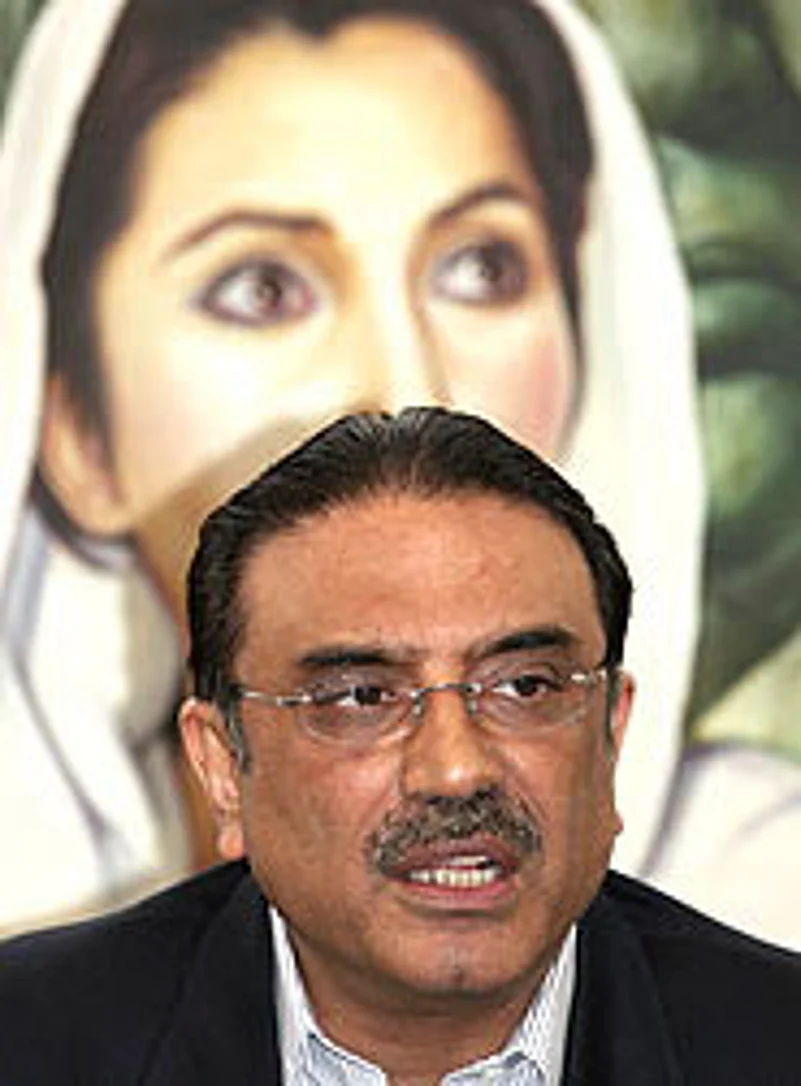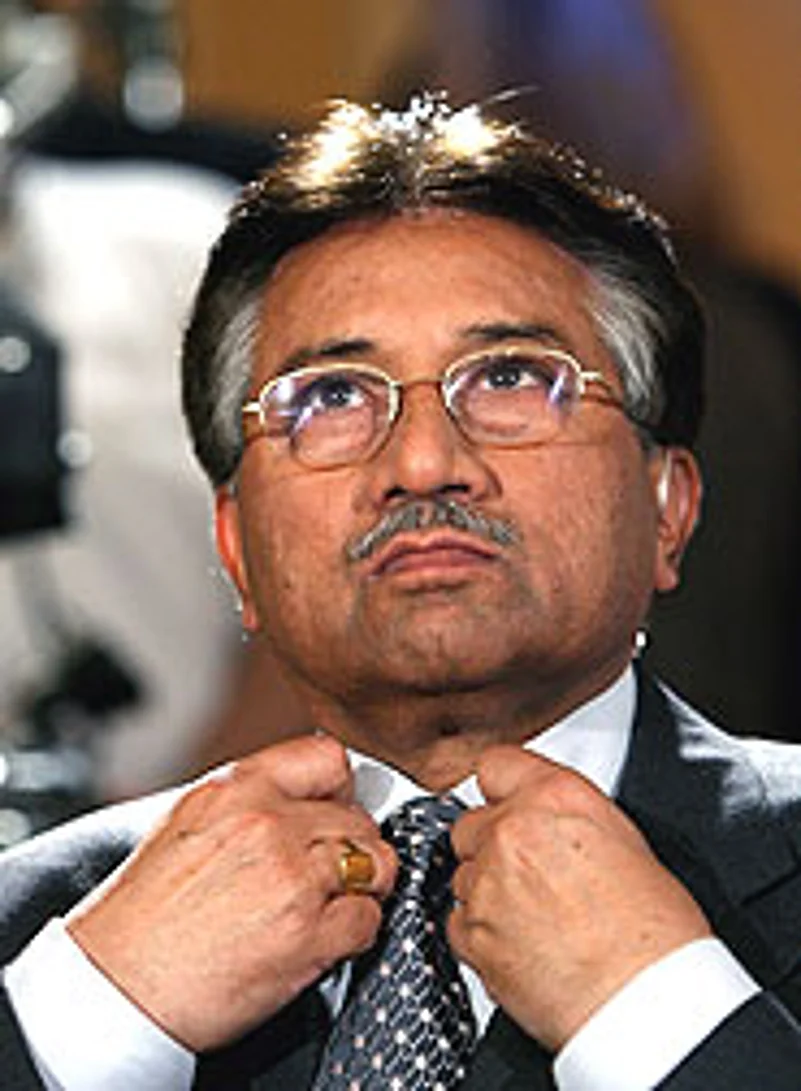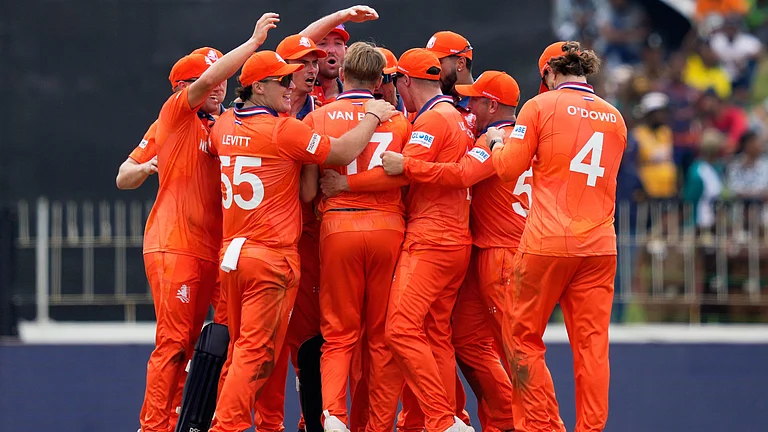
This has raised the spectre of a poor voter turnout on February 18. One estimate says it may not cross 28 per cent. The weekly Friday Times described the prevailing mood thus, "Since President Musharraf is in no mood to call it a day, we are lumped with the prospect of a rigged or delayed election.... Unfortunately, the air is thick with dark revelations of terrorists 'hit lists' and forebodings of bloody assassinations. Therefore, most politicians are not venturing too far out and there is no 'election campaign' out there."
The poll campaign, however, could gather fresh momentum from February 8, the day the PPP ends its 40 days of mourning for Benazir. The party has planned public meetings and functions. The most important of these would be Asif Ali Zardari's rally at the site in Rawalpindi where his wife died. His dubious past notwithstanding, the PPP has remarkably rallied behind him without any voice of dissent.
Yet, Zardari's real test will be in Lahore where he will stress upon the PPP's ideology of building a strong federation. This is expected to counter those trying to drive a schism between Punjab and Sindh, Benazir's home province. The resonance of this message could well determine the magnitude of PPP's victory—now considered a foregone conclusion. Even traditional voters of the parties boycotting the polls openly say they will come out to stamp the ballot in favour of the PPP.
Missing from action is the Pakistan Muslim League (Q), or the King's party. The party has now refrained from issuing posters bearing Musharraf's image, fearing it could drive away voters. Comments political analyst Assim Sajjad Akhter: "Notwithstanding the close association of the PML(Q) with the retired general, the party seems to have realised that their patron is deeply unpopular, and that there is a need to establish some distance between the party and Musharraf, at least for public consumption."
Some are already spelling out the future agenda should Musharraf have to swear in a PPP prime minister. Former foreign secretary Tanvir Ahmad Khan says the primary task of the future government should be to restore the 1973 Constitution to the extent possible. "Musharraf can either continue within those restored parameters or face more and more strident demands for him to step down altogether," says Khan.

Musharraf himself predicts a hung Parliament and hopes to leverage it to his advantage. He said at Davos, "If needed, I will be prepared to facilitate forming a coalition government for the sake of harmony and success of the democratic process." But the new government, coalition or otherwise, will have its work cut out because of the mess Pakistan is in. It is already facing shortages of gas, electricity and wheat. Says Pakistan's leading economist, Kaiser Bengali: "Because (Shaukat) Aziz knew he did not have to go back and ask people for votes, he couldn't care less about what he did to the economy. We have created the problem of inflation that is out of control and a trade imbalance. The Musharraf regime is going to give the next government a massive foreign exchange crisis."
In this enveloping despondency, the only beacon of hope is army chief Pervez Kiyani's bid to redefine the most powerful institution of Pakistan. The GHQ has been sending the message that the army will keep away from the poll process and will intervene only at the provincial government's request to tackle any law and order problem. Kiyani is also trying to ensure that officers posted to civilian departments return to their posts in the army, thus hoping to snap the inimical link between the military and politics.
The nation perhaps will also find enthusing the return of blackcoats to the streets. As Musharraf spent the last weekend playing bridge with friends in London, the lawyers marched to Army House in Rawalpindi, demanding that the president vacate its premises as he no longer held the post of the COAS. This was in retaliation to Musharraf's demand that the deposed chief justice, Iftikhar Chaudhry, should shift out from the residence of the chief justice. The forthcoming elections could see the coming together of lawyers and political activists. Perhaps the lawyers would again nudge the nation out of its grief as they had done in the spring of 2007, when Chaudhry was suspended.





















